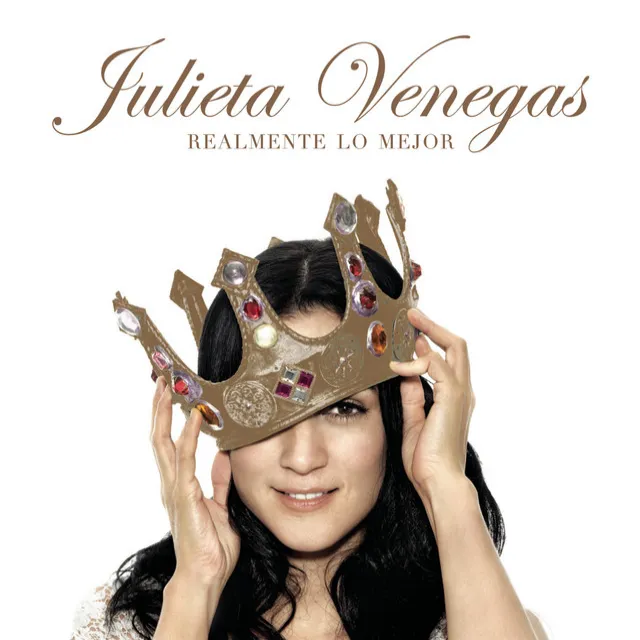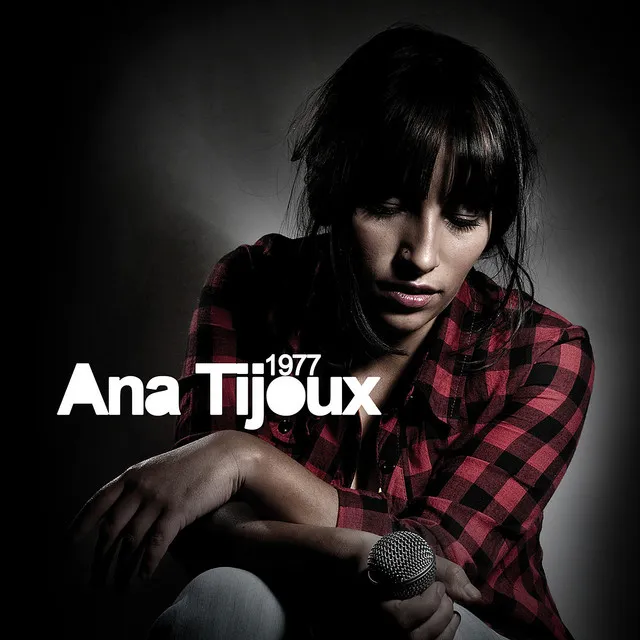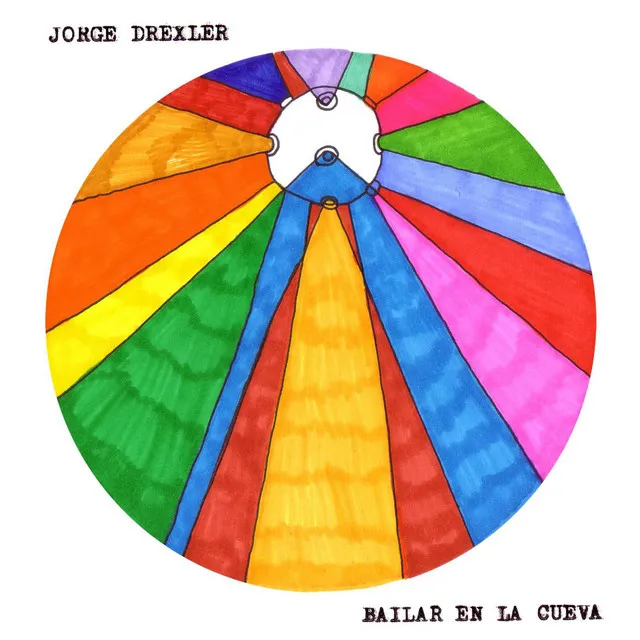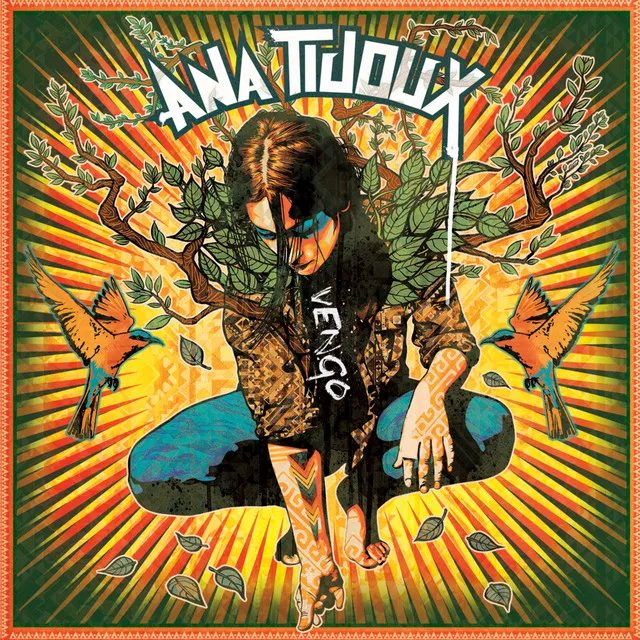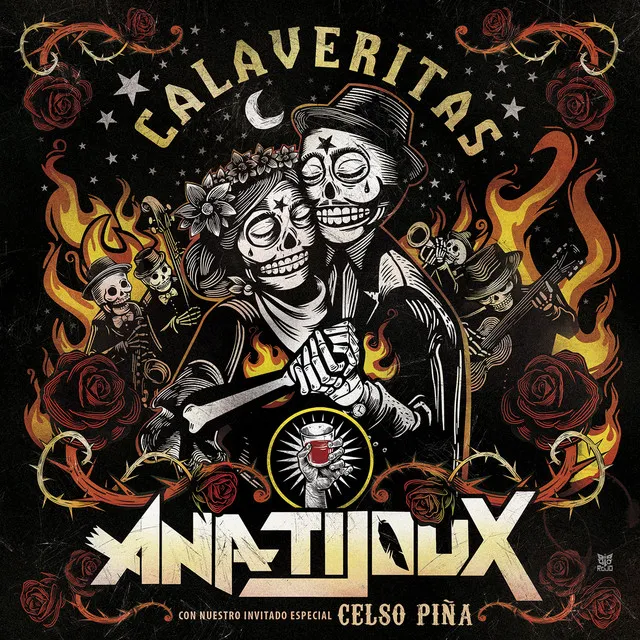Ana Tijoux is French-Chilean songwriter, singer, MC, and recording artist who is well known for her willingness to confront social injustice and for her commitment to nonviolence. She initially established herself in the Latin American hip-hop underground as a member of the pioneering group Makiza during the late '90s. She found much more widespread success several years later as a solo artist and guest rapper, though, most notably on "Eres Para Mí," a 2006 collaboration with Julieta Venegas that was a smash hit throughout the Spanish-speaking world. Tijoux released her solo debut, Kaos, in 2007, followed by 1977, her breakthrough, in 2009. She followed with 2011's La Bala and the star-studded Vengo in 2014. All three were nominated for Grammy awards, while La Bala won a Latin Grammy for Best Urban Music album. Tijoux spent the next decade releasing singles, soundtrack selections, and collaborations with others, including Jorge Drexler, Clara Peya, and Arturo O'Farrill. She returned to full-length recording with 2024's Vida, produced by Andres Celis.
Tijoux was born in France, she is the daughter of two Chilean exiles who left during the rise of the oppressive Pinochet regime during the military coup of 1973. Born in 1977, Tijoux began to rap and dance at the age of 11, before moving back to Chile in 1993. In 1995, she formed her first rap group, Los Gemelos with Zaturno, another Chilean MC. She also collaborated with the popular act Los Tetas and later formed the popular hip-hop crew Makiza, with Zaturno, DJ Squat, and others; they issued their independently released debut, Vida Salvaje, in 1997. The act signed to Sony in 1998 and issued Aerolineas Makiza in 1999. The album was a remake of their debut, with better production and some new material added to the mix, including the single "La Rosa de los Vientos," which became a hit. Makiza split in 2000.
In 2003, Tijoux cut the hit single "Lo Que Tu Me Das" in duet with Julieta Venegas. She then moved back to France briefly, where she cut the solo single "Santiago Penando Estas," which appeared on a tribute album for Chilean composer, writer, and artist Violeta del Carmen Parra Sandoval; the album charted in both Chile and France. In 2004, Tijoux and Seo2 re-formed Makiza with new collaborators. They recorded and released Casino Royale in 2005. The reunion was short-lived.
In 2006, Tijoux decided to pursue a solo career in earnest. She cut the single "Ya No Fue," but her debut album was never released. She collaborated with Venegas again in 2007 on the track "Eres Para Mi," which appeared on the latter's hit album Limon y Sal. Later that year, Tijoux cut another album entitled Kaos for the independent Oveja Negra. The set's first single, "Despabilate," was a hit and she was nominated for Best New Artist and Best Urban Artist at the Latin MTV Awards; she and Venegas were also nominated for Song of the Year. Tijoux abandoned Latin pop (and singing, for the most part) for her next album, the breakthrough back-to-hip-hop set 1977, which was released in 2009 and established her as a fierce MC. It was critically and commercially successful. The album was picked up for distribution by major independent Nacional Records and re-released in 2010, with the title track becoming its first hit. She followed this with the self-released Elefant Mixtape in 2011, and the album La Bala, which was also released by Nacional Records in 2012. It became an international smash. Tijoux received a Grammy nomination for the album in the Best Latin Rock, Urban or Alternative Album category and took home a Latin Grammy for Best Urban Music album. The same year, Tijoux's "1977" was featured in a season four episode of Breaking Bad.
The artist spent most of 2013 recording her follow-up, a provocative mix of soulful, horn-heavy, funky cumbia, throwback hip-hop, neo-soul, and Andean folk. Vengo was released in March of 2014. The set also won a Grammy nod. Tijoux spent the next decade raising two children, touring, and releasing singles and collaborations. She worked with Las Manos de Filippi on their anniversary set, Sr.Cobranza 25 Años," and teamed up with Jorge Drexler on the smash "Universos Paralelos," which won a Latin Grammy for Record of the Year in 2014. She joined Molotov on their MTV Unplugged set, performing "Hit Me" with the band.
In 2019, Tijoux issued the charting single "Cacerlazo" on her independent Victoria Producciones SpA label. The following year, as the COVID-19 pandemic hit, Tijoux wrote and released important tracks: Her January 2020 single "Libertad" was the theme of director David Albala's Pacto de Fuga, based on a factual account of 49 Chilean political prisoners escaping incarceration through a tunnel in 1990 (it took them 18 months to dig). She relocated to Spain as the pandemic took hold of the globe. In July she delivered "No Estamos Solas," the theme from the police procedural series La Juaria, followed by"Antifa Dance." She enlisted PJ Sin Suela that month to collaborate on the horn-driven cumbia "Pa Que," and in October, MC Millaray for "Rebellion de Octubre." She appeared with singer-songwriter Clara Peya and guest Alba Flores on "Mujer Frontera" in 2021. In November she issued the single "Mal." The following year she guested on drummer Antonio Sanchez's Shift (Bad Hombre 2), appearing on its single "La Palabra."
In 2023, Tijoux issued the singles "Ninx" and "Tania" (in memory of her sister) and collaborated with DJ Bittman and Movimiento Original on the hit "A la Cina" and its remix. She also appeared on "Somos Sur," the closing track on the "Immersive Edition" of Arturo O'Farrill and the Latin Jazz Orchestra's Fandango at the Wall. In December she was awarded a Harry Belafonte Fellowship by The Action Lab NYC for her commitment to social activism in music. In January 2024, Tijoux self-released Vida, her first album in a decade, on Victoria Producciones Spa. Produced by Andres Celis (who also played almost all instruments), the 15-track set hosted guest spots by iLe, Talib Kweli, and De La Soul's Posdnuos. ~ Thom Jurek, Rovi

